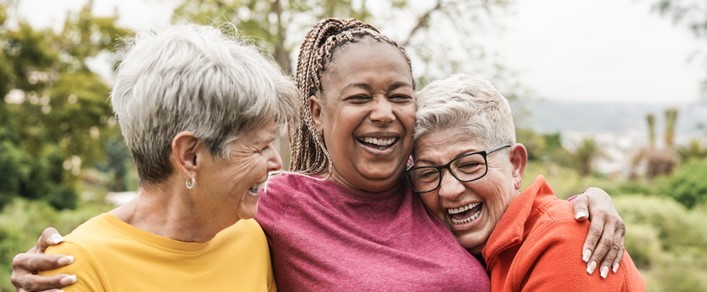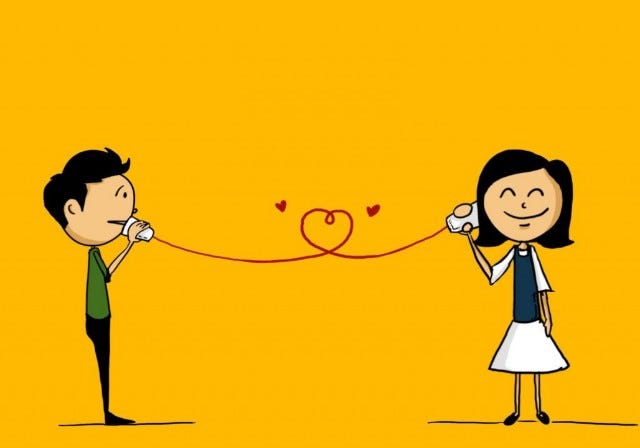
Better communication in your relationships
By Dr Crosby S.
Effective communication is the cornerstone of healthy and fulfilling relationships, shaping the way we connect, resolve conflicts, and deepen our bonds with others. In the realm of personal relationships, whether romantic, familial, or friendships, the ability to communicate openly, honestly, and empathetically plays a pivotal role in fostering trust, intimacy, and understanding. This article delves into the significance of better communication in relationships and explores practical strategies to enhance communication skills, overcome barriers, and cultivate lasting connections built on mutual respect and effective dialogue.
The Foundation of Strong Relationships

Good communication is like the sturdy foundation of a house – without it, things can get shaky real quick. To build a solid relationship, you need to be able to express yourself clearly and listen attentively to your partner.
Enhancing Connection and Intimacy
When you communicate effectively with your partner, you’re not just exchanging words; you’re building a deeper connection and fostering intimacy. Sharing your thoughts, feelings, and experiences openly can bring you closer together.
Honesty and Transparency in Communication
Trust is the glue that holds relationships together, and open communication is the key to building that trust. Being honest and transparent with your partner shows that you value their trust and are committed to a healthy relationship.
Creating a Safe Space for Vulnerability
When you communicate openly and create a safe space for vulnerability, you invite your partner to share their true thoughts and feelings without fear of judgment. This level of trust and acceptance strengthens the bond between you.
The Art of Empathetic Listening
Listening isn’t just about hearing words; it’s about understanding and empathizing with your partner’s feelings and perspective. When you practice empathetic listening, you show that you care about their emotions and experiences.
Reflective Listening Techniques

Reflective listening involves paraphrasing and reflecting back what your partner has said to ensure you’ve understood them correctly. This technique helps prevent misunderstandings and shows your partner that you’re actively engaged in the conversation.
Identifying and Addressing Communication Challenges
We all face communication barriers from time to time, whether it’s misinterpretations, distractions, or differences in communication styles. By identifying these challenges and addressing them head-on, you can work towards clearer and more effective communication.
Strategies for Effective Communication During Conflict
In any relationship, conflict is inevitable, but it doesn’t have to be harmful. By using strategies like staying calm, actively listening, and expressing your feelings constructively, you can navigate conflicts with grace and come out stronger on the other side.
*Understanding Nonverbal Cues and Body Language
Ever had your partner give you the silent treatment or roll their eyes during an argument? Yup, that’s nonverbal communication at play. Understanding body language cues can give you insight into what your partner is really feeling, even if they’re not saying it out loud.
*Enhancing Communication Through Nonverbal Signals
From a gentle touch to maintaining eye contact, nonverbal signals can speak volumes in a relationship. Embracing these subtle cues can help strengthen your connection and add depth to your communication.
Strategies for Conflict Resolution Through Communication
*Effective Communication Techniques During Conflict
When things heat up, it’s crucial to keep a cool head. Using “I” statements, active listening, and avoiding blame games can help you navigate conflicts with grace and understanding.
*Negotiation and Compromise in Resolving Conflict
Compromise is key in any relationship. Finding common ground and working towards a solution that satisfies both parties can prevent conflicts from escalating and nurture a healthy balance in your relationship.
Cultivating Emotional Intelligence for Better Relationship Communication
*Recognizing and Managing Emotions in Communication
Emotions can run high in relationships, but being able to recognize and manage them is crucial for effective communication. Take a pause, breathe, and address your feelings before engaging in discussions with your partner.
*Empathy and Understanding in Relational Communication
Walking a mile in your partner’s shoes can do wonders for relationship communication. Cultivating empathy and understanding their perspective can bridge gaps and foster a deeper connection based on mutual respect and support.
Nurturing Healthy Communication Habits for Long-lasting Relationships

*Establishing Communication Rituals and Routines
Whether it’s a daily check-in or a weekly date night to discuss your feelings, establishing communication rituals can keep the channels open and strengthen your bond over time.
*Maintaining Open Communication Channels Over Time
Effective communication is a continuous process rather than an isolated event. Keep the dialogue flowing, be open to feedback, and adapt your communication style as your relationship evolves to ensure lasting harmony and connection.In conclusion, by prioritizing communication in our relationships, we pave the way for greater understanding, trust, and harmony. Through active listening, open dialogue, and emotional awareness, we can navigate challenges, deepen connections, and nurture relationships that stand the test of time. Remember, communication is not just about words; it’s about building bridges of empathy and connection that strengthen the foundation of our relationships. Embrace the power of effective communication, and watch as your relationships flourish and thrive.

FAQ
1. Why is communication important in relationships?
Effective communication is essential in relationships as it fosters understanding, builds trust, resolves conflicts, and enhances intimacy between individuals. Without clear and open communication, misunderstandings can arise, leading to strained relationships and potential break down of connections.
2. How can I improve my communication skills in relationships?
Improving communication skills in relationships involves active listening, practicing empathy, being honest and transparent, and developing emotional intelligence. Engaging in open and honest conversations, seeking to understand the other person’s perspective, and being mindful of nonverbal cues can all contribute to better communication in relationships.
3. What are common barriers to effective communication in relationships?
Common barriers to effective communication in relationships include lack of listening, defensiveness, misunderstandings, poor nonverbal communication, and unresolved conflicts. By recognizing these barriers and actively working to overcome them through patience, empathy, and active engagement, individuals can improve their communication dynamics within relationships.
4. How can communication help in resolving conflicts in relationships?
Communication plays a crucial role in resolving conflicts in relationships by providing a platform for expressing feelings, concerns, and perspectives. By practicing active listening, validating emotions, and seeking mutually beneficial solutions, individuals can navigate conflicts constructively and strengthen their relationships in the process.